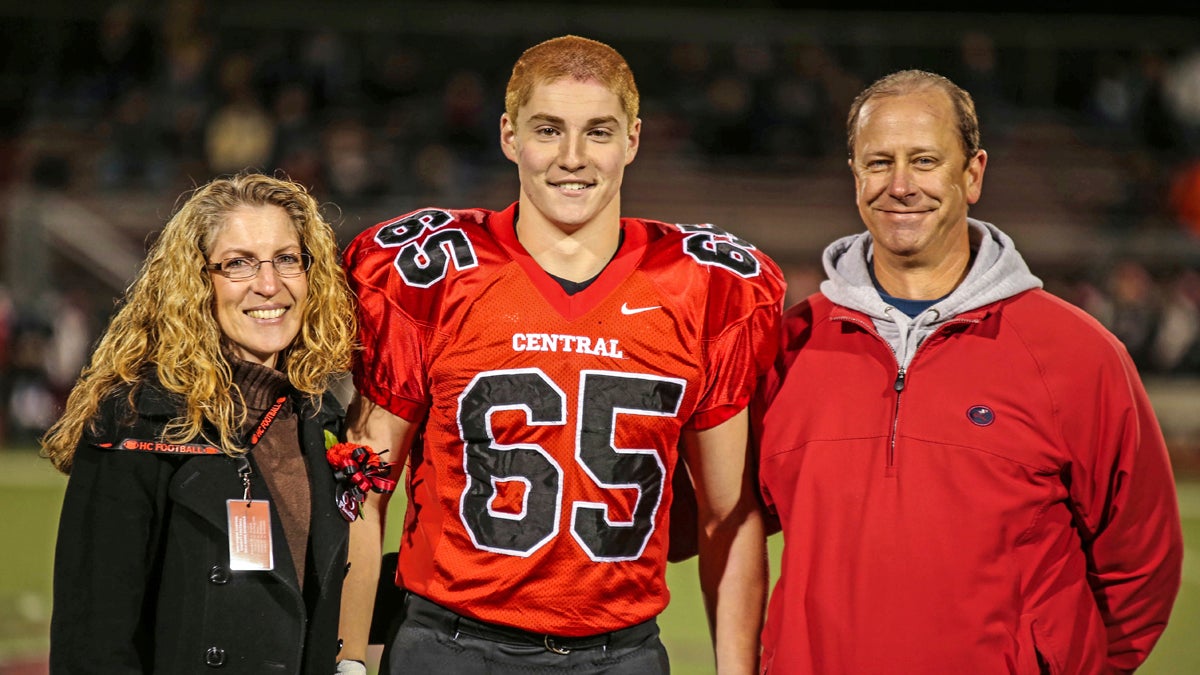On ‘Radio Times:’ Why do fraternity hazing-related deaths persist?

This Oct. 31, 2014, photo provided by Patrick Carns shows Timothy Piazza, (center), with his parents Evelyn and James Piazza, during Hunterdon Central Regional High School football's 'Senior Night' at the high school's stadium in Flemington, N.J. (Patrick Carns via AP)
On Friday’s Radio Times, host Marty Moss-Coane was joined by attorney Doug Fierberg, who specializes in these types of cases.
The hazing-related death of Timothy Piazza, the Beta Theta Pi pledge at Penn State has resulted in criminal charges for 18 fraternity brothers who neglected to seek medical help for the ailing student for 11 hours.
According to one attendee at the induction ceremony, some fraternity members were laughing at an unconscious Piazza, and deliberately dissuaded those who suggested calling an ambulance. The event, while unique in the high number of defendants, is a symptom of the nationwide problem of hazing-related injuries and death.
On Friday’s Radio Times, host Marty Moss-Coane was joined by attorney Doug Fierberg, who specializes in these types of cases. He said among the reasons that hazing persists is due to the lack of supervision, particularly when it comes to alcohol consumption, saying “the single strongest predictor of binge drinking across the country is fraternity membership. He went on to ask, “why is there a system that allows alcohol to be used in Greek housing and have 18 to 19-year-olds manage it when they cannot do it at any licensed other establishment in the country?”
Marty was also joined by Gentry McCreary. He’s an affiliated consultant with NCHERM, a group that works with fraternities to instruct students on eliminating harmful hazing practices. He said “often times hazing is done with an altruistic motivation. They’re trying to build a sense of community, a sense of unity, trying to teach lessons. But what is alleged to have occurred at Penn State is hazing that’s done with a social dominance motivation which doesn’t serve any other purpose other than reinforcing the group culture and the hierarchy in the group.”
To hear more on hazing, listen to the full interview on Radio Times.
WHYY is your source for fact-based, in-depth journalism and information. As a nonprofit organization, we rely on financial support from readers like you. Please give today.




